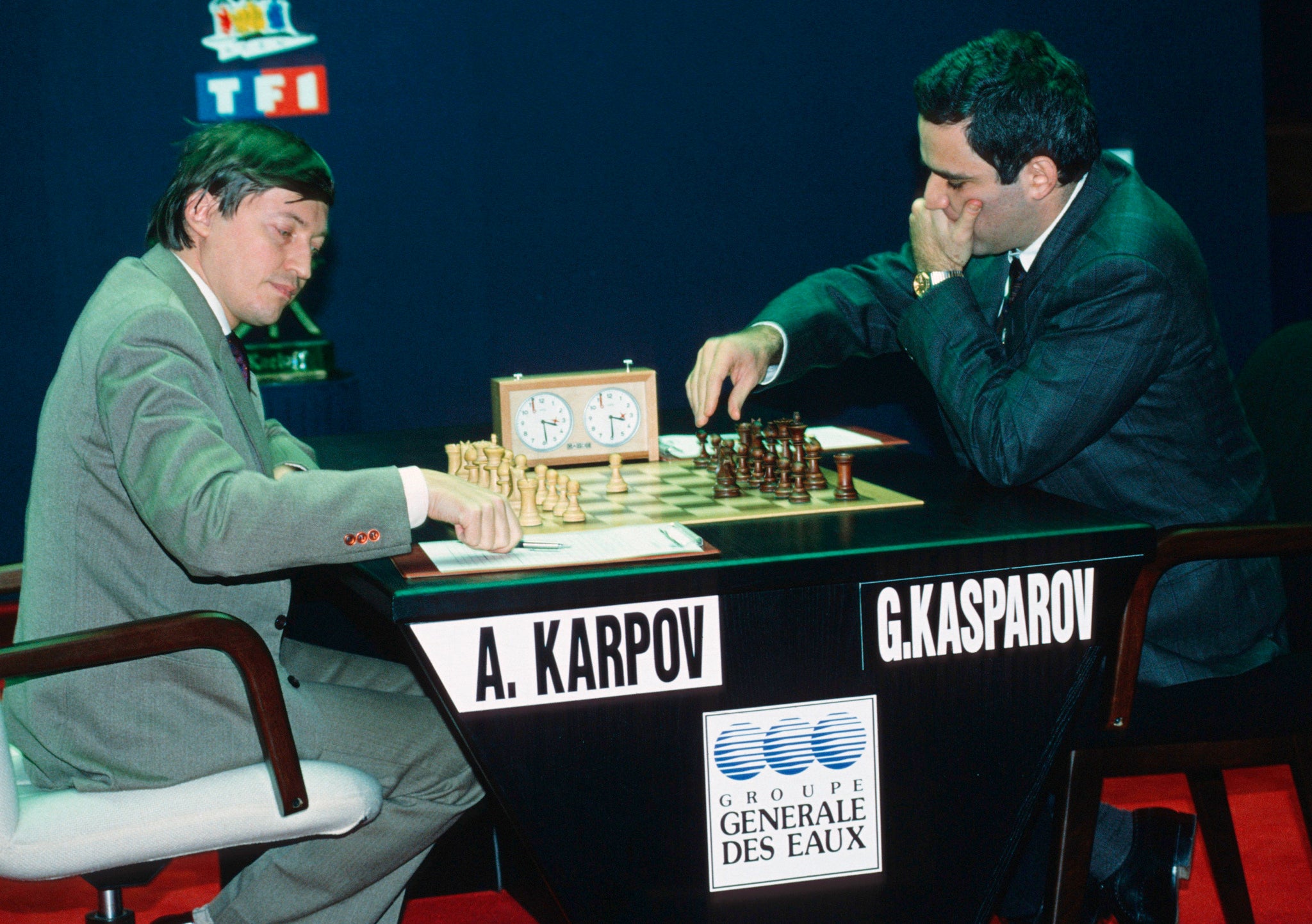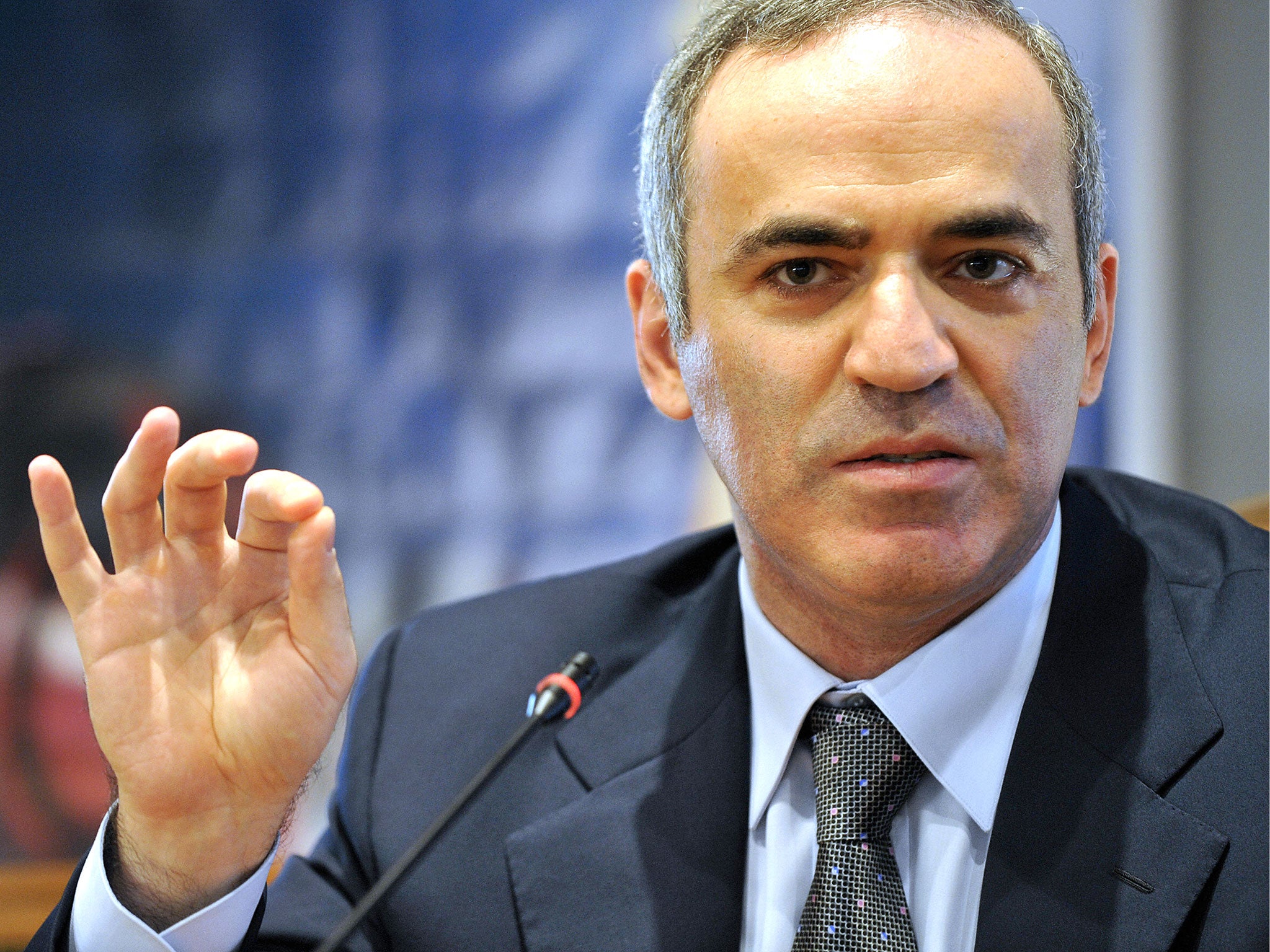
For half of the 20th century, Soviet and Russian players dominated chess, winning all but one World Chess Championship, the game’s most prestigious tournament.
During the Soviet era, grandmasters like Garry Kasparov and Anatoly Karpov were treated as celebrities.
Even today, Russia boasts some 239 grandmasters - by far the most of any country.
“There is still a huge, popular enthusiasm for the game when important matches and tournaments are going on,” said Michael Hudson, an associate professor at American University of Phnom Penh in Cambodia, who wrote his dissertation on chess in the Soviet Union. “They still get headline news.”
But the international organizing chess body last week dealt a blow to the country where the game has been historically ingrained in its national identity.
In response to the invasion of Ukraine, the International Chess Federation has pulled tournaments from Russia and Belarus, a move that experts described as historic.

“FIDE expresses its grave concern about the military action started by Russia in Ukraine,” the organization, using its French acronym, said in a statement. “FIDE stands united against wars as well as condemns any use of military means to resolve political conflicts.”
In addition to pulling tournaments - including the prestigious Chess Olympiad - FIDE also said that Russian and Belarusian players will not be allowed to display their flags in tournaments, and the federation will terminate all sponsorship deals it holds with Russian and Belarusian state-owned enterprises. It also said that two Russian players who publicly voiced support for the invasion could face discipline.
“We felt quite strongly that we had to take action,” Nigel Short, a FIDE vice president and British grandmaster, told The Washington Post.
“This is a naked act of aggression against a sovereign country and . . . it involves two very important chess nations,” he added, referring to Russia and Ukraine. “I mean, these are two of the strongest chess nations in the world.”
In the days leading up to Sunday’s announcement, critics had questioned whether the organization would take a firm stance on Russia. Ben Finegold, an American grandmaster, was one of them.
Following FIDE’s announcement to pull the Chess Olympiad and suspend other tournaments, Finegold told The Post that the organization’s move is “unprecedented” because it has traditionally shied away from politics. It was also a “pleasant surprise” because FIDE’s president, Arkady Dvorkovich, is Russian.
“The Olympiad is a huge event, so taking it away is a real ‘sanction’ against Russia,” Finegold said.
The measures “may make the Russian [grandmasters] even more upset with Putin,” he added, “and might cause some to rethink which country they represent.”
The sanctions being imposed by FIDE coincide with actions by other international sporting organizations amid Russia’s ongoing military campaign in Ukraine, which Belarus is supporting.
FIFA, soccer’s global governing body, and the Union of European Football Associations on Monday suspended Russia from international competition, as the International Olympic Committee recommended that sporting organizations bar Russian and Belarusian athletes from participating in events. Organizations representing hockey, ice skating, tennis and other sports have placed varying restrictions on the country as the United States and the European Union seek to cut Russia off from the international financial system.
FIDE, meanwhile, stopped short of banning Russians from participating in tournaments. Asked whether FIDE could impose more restrictions, Short said the organization has been “very widely praised for the actions it has taken already - even from its perennial critics.”
“But whether our substantial decisions have gone far enough is another matter,” he said. “It is something we are reviewing.”
Sporting sanctions can represent a “moral opprobrium” that could also shake Russian citizens’ confidence in President Vladimir Putin, said Steven Fish, a political science professor at the University of California at Berkeley.
Putin’s rationale for invading Ukraine will “be harder and harder to sustain with ordinary Russians when they’re seeing apolitical international sports organizations . . . locking their country out,” Fish told The Post.
Fish added that international sporting events, including the Chess Olympiad, are extremely important to Russians. Putin has worked to raise Russia’s global prestige by hosting events such as the 2014 Winter Olympics in Sochi and the 2018 World Cup, he said.
“Chess definitely has a big part in Russians’ imagination, and they pride themselves in the fact that they have grandmasters and they tend to do well in these competitions,” Fish said. “And this, like soccer, is a beloved sport in Russia, and they’re going to take very seriously being excluded from it.”
As of October 2020, there were 1,722 grandmasters in world, according to FIDE, and Russia was home to 239 of them. Germany, the country with the second-most grandmasters, had 96, and the United States followed with 95.
While Russia’s relationship with chess can be traced back centuries, it was during the Soviet era that the game became widespread, said Hudson, the professor in Cambodia.
“Chess has this very important ideological component to it, right from the very beginning,” Hudson said. “Chess was never about chess in the Soviet Union. Chess was about politics.”

Vladimir Lenin and other Bolsheviks were avid chess players, Hudson said, and the Soviet leaders believed the 1917 Russian Revolution “came too early.” Therefore, they sought to prepare the proletariat for its “historic mission” of achieving a socialist society, Hudson said: “It was decided that chess would be one of the ways to do this.”
In the 1920s, a “chess fever” overtook the Soviet Union as the government-sponsored programs and set up chess clubs from Moscow to the Siberian countryside, Russian FIDE master Andrey Terekhov wrote in an essay published on Chess24.com, a chess platform and publication. The game was ever-present in factories, cafeterias and schools, according to Hudson.
Chess later became a way for the Soviets to exert international power - to demonstrate the “superiority of the Soviet system,” Hudson said, and Russia came to “dominate” FIDE.
The Soviet Union and Russia soon produced some of the most celebrated and successful grandmasters, including Kasparov, Karpov and Mikhail Botvinnik. In the second half of the 20th century, players from the Soviet Union and Russia won all but one World Chess Championship.
FIDE’s connection to Russia continued after the fall of the regime, Wired reported.
For 23 years beginning in 1995, Russian businessman and politician Kirsan Ilyumzhinov served as the organization’s president.
He was accused of being close to the Kremlin, which he has denied, as FiveThirtyEight reported. In 2015, the U.S. Treasury Department sanctioned Ilyumzhinov for providing financial support to the Syrian government.
“We have been Russian-dominated, at least on the political level, for a long time,” Short, the FIDE official, told The Post.
Dvorkovich, who previously worked for the Russian government, is now the organization’s president. But Short credited Dvorkovich with helping to usher in an organizational shift. He said FIDE’s ability to pull tournaments from Russia and cut sponsorships from its state-owned companies “shows that things are changing.”
Short emphasized the importance of cutting the sponsorships.
“A few years ago, FIDE would not have been able to do that because it wouldn’t have been able to afford it,” he said. But now, “we get our money from different sources, many different countries around the world.”
Hudson, the professor, agreed that FIDE’s most recent actions are a sign of changing sentiments.
“This whole business with FIDE pulling out of Russia would have been unthinkable in Soviet times because FIDE was really controlled by the Soviet Union,” Hudson said.
In the most recent World Chess Championship hosted in Dubai in late 2021, Russian grandmaster Ian Nepomniachtchi was defeated by Norwegian grandmaster Magnus Carlsen, the defending champion.
Carlsen has publicly opposed Russia’s invasion of Ukraine, tweeting last week, “Peace is cool. War - not so much.”
Notably, Nepomniachtchi and other prominent Russian grandmasters have, too.
Nepomniachtchi tweeted in Russian: “I fear the price of the madness of the last days will be unimaginable and exorbitant.”







